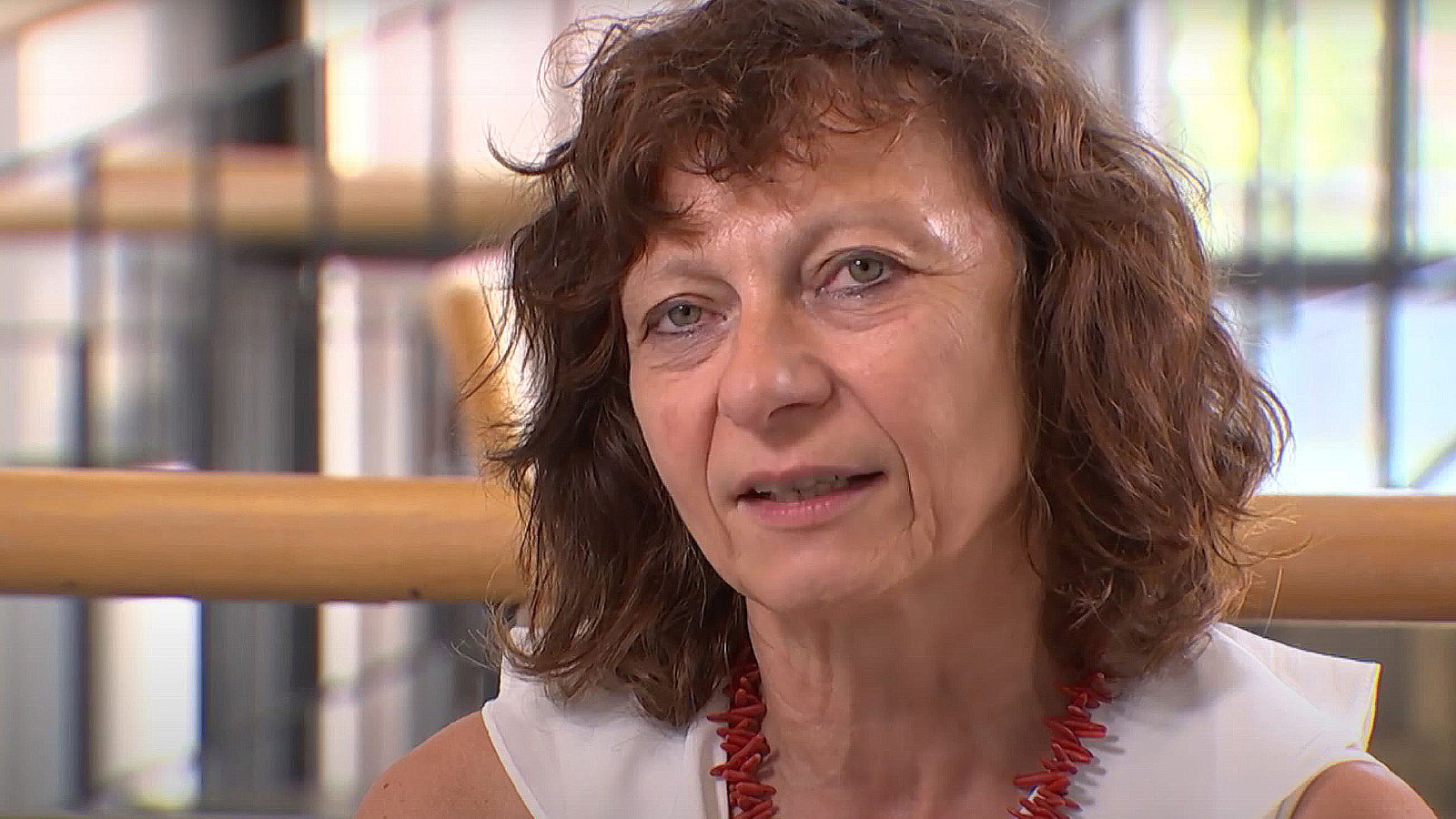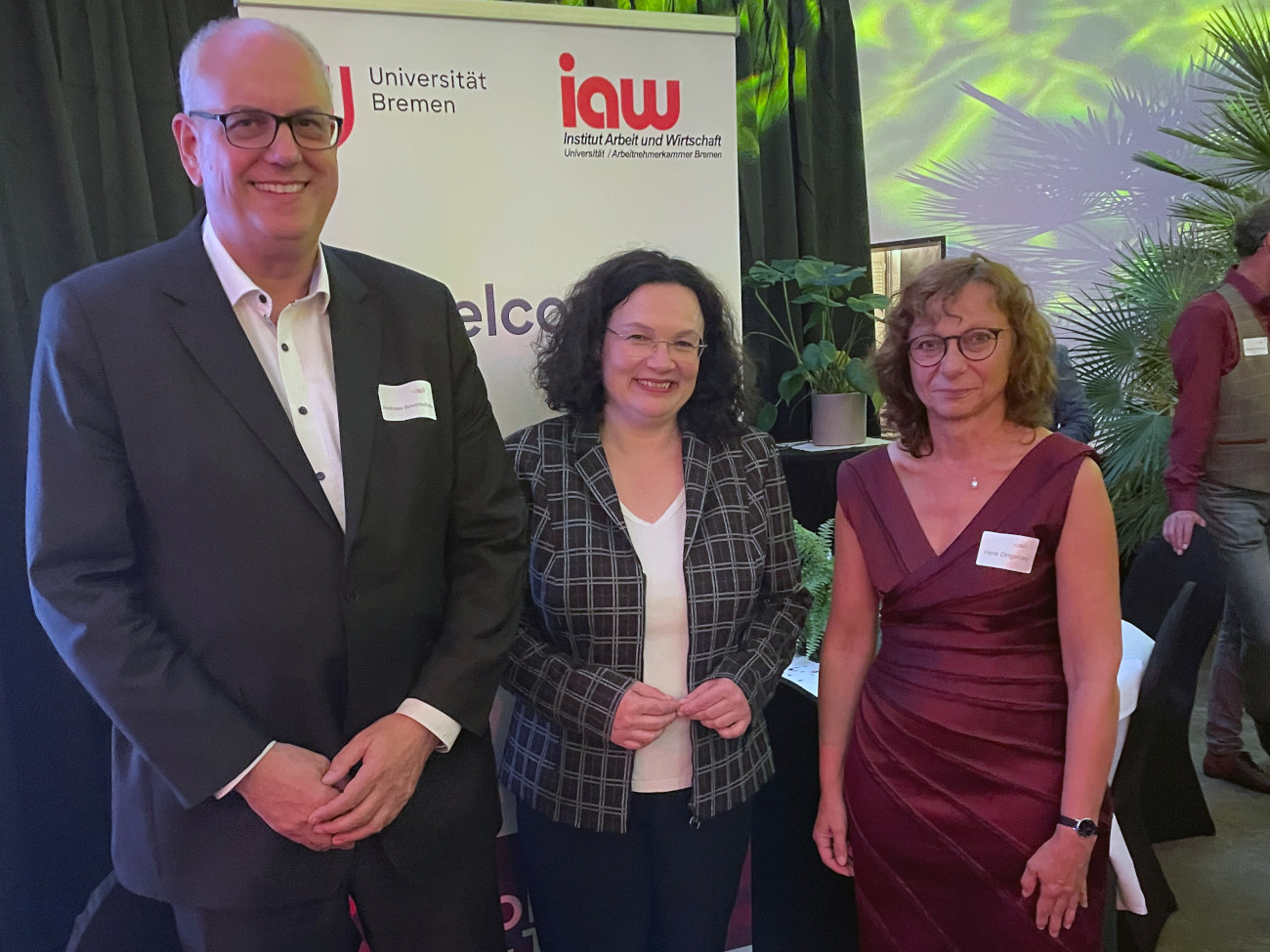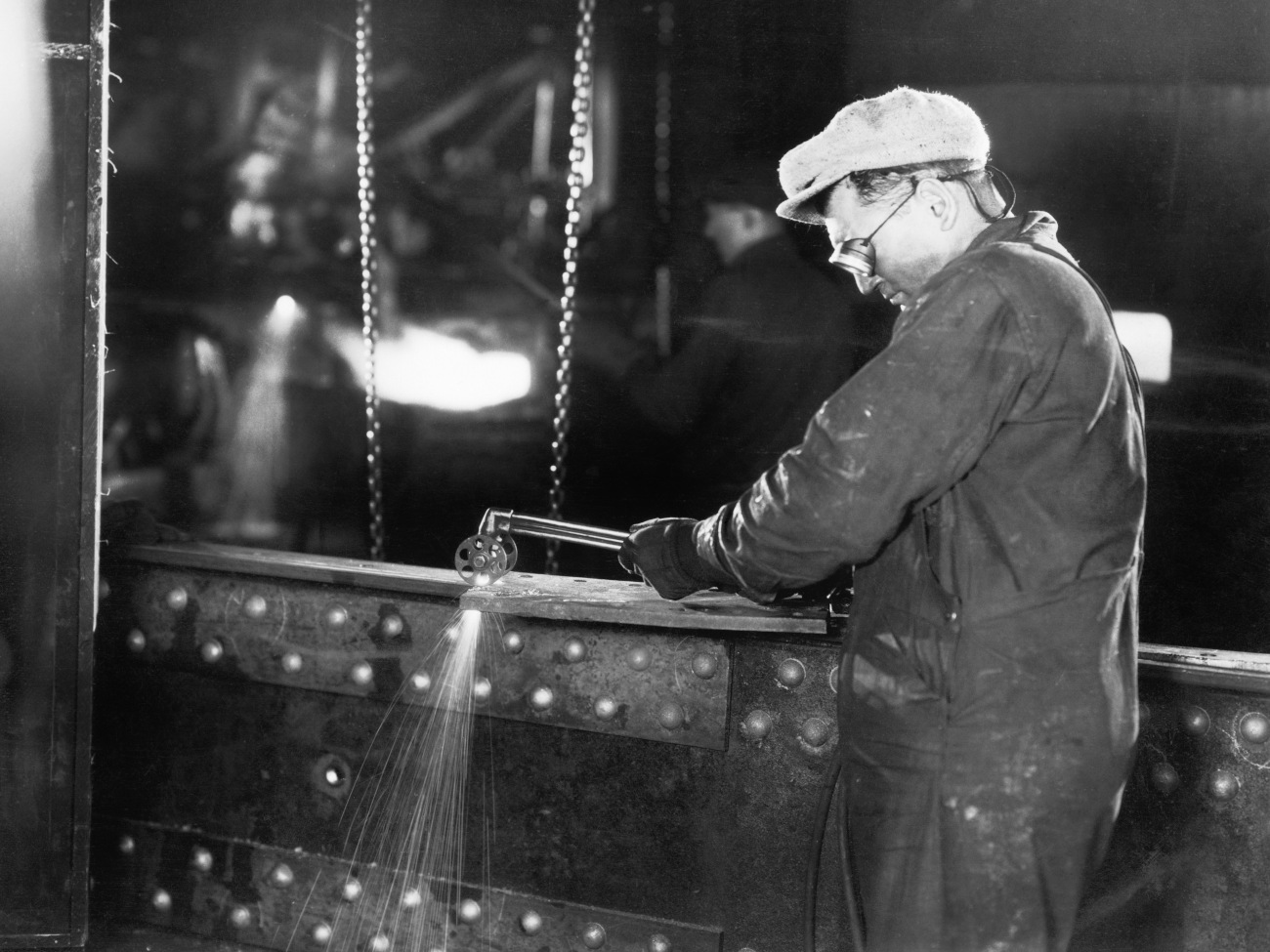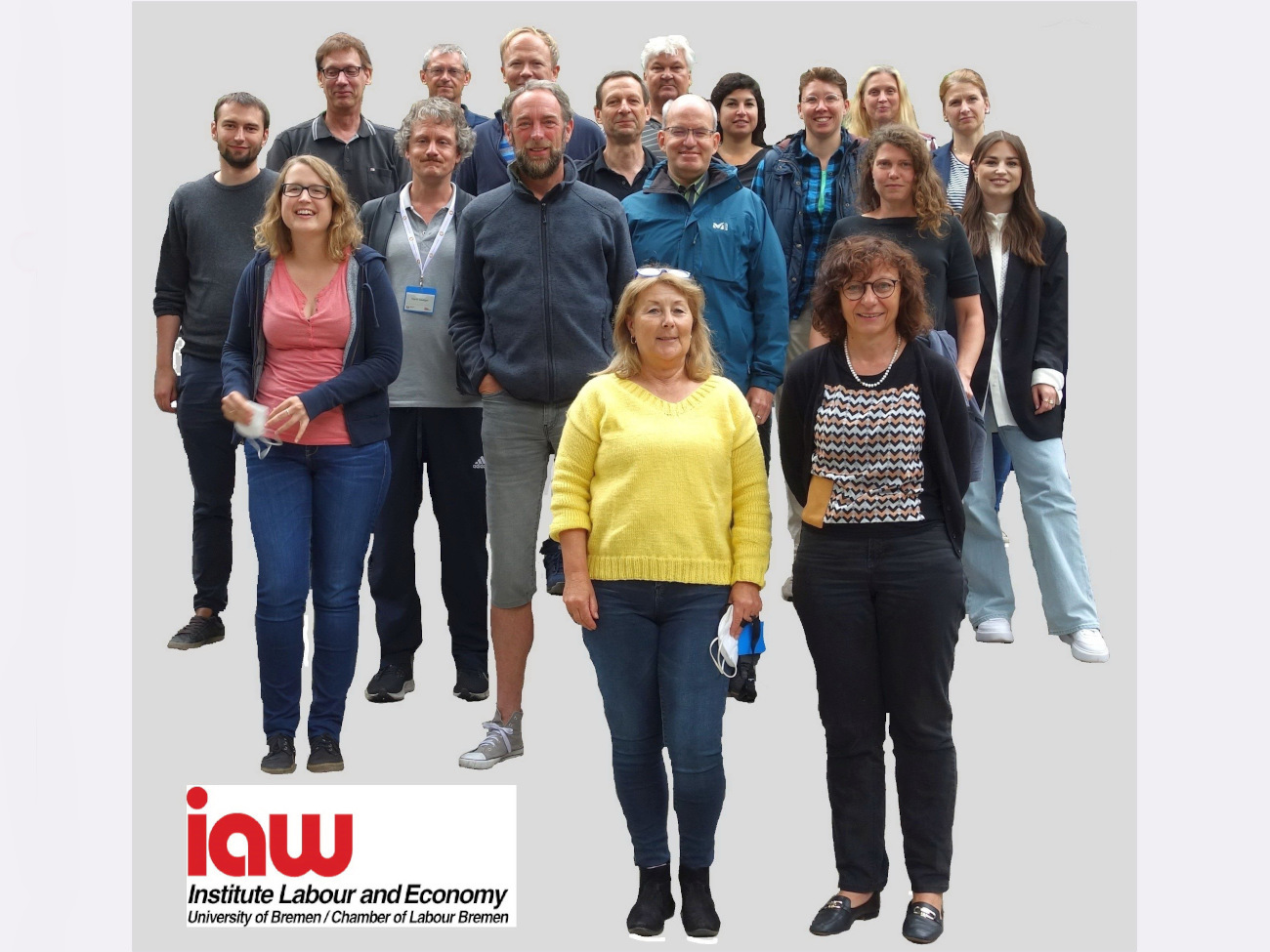
© iaw
50th and 20th Anniversary: “The iaw Is Absolutely Necessary”
The Institute for Labour and Economy – or iaw for short – recently celebrated a “double anniversary” with many prominent figures. Good reason, then, to sit down with Professor Irene Dingeldey, the institute’s director.
In Bremen, the abbreviation “iaw” is a trademark when it comes to in-depth regional analyses of the various aspects of work and social affairs. Professor Irene Dingeldey explains why academic analysis on poverty and social inequality, municipal social, educational, and family policy, as well as Urban and Regional Studies is so important for the city and state of Bremen – and what role the institute has played in these areas for decades.
Professor Dingeldey, the University of Bremen was founded in 1971. From the very beginning, there has also been a partnership with the Chamber of Labour. While you were not involved back then, you surely must know about the motives behind forming the partnership at that time …
In 1971, the Chamber of Labour had a different name, and there was also an institution called the “Angestelltenkammer,” which roughly translates as Chamber of Employees. Later, both were combined under the name we know today. The University of Bremen, which started as a reform university, wanted not only to deal with conventional topics, but also to shed light on the living conditions and problems of the working class. That was still the largest group in society back then. This led to the partnership with the previous incarnation of the Chamber of Labour, which looked very different from today’s institution. For example, workers’ education played a major role at that time. It was a time of lively debate, during which the partnership was not always free of conflict. In organizational terms, it was a “Central Scientific Unit” (a ZWE in the German abbreviation) called “Arbeit und Betrieb,” that is “work and operations,” later to be known as “Arbeit und Region,” or “work and region.”
Twenty years ago, the Institute for Labour and Economy was founded, whose abbreviation “iaw” is now something of a trademark. What was the reason for founding the institute – and what has it grown into?
During the 1980s, the partnership’s original organizational form had become somewhat obsolete, and the idea was to transfer it into a new form. The founding director at the time was Professor Rudolf Hickel. Only the iaw and the Center of Labor and Politics – or zap for short in German – remain of the old ZWE today.
You then celebrated your 50th and 20th anniversary in mid-September 2022 – actually one year too late. How did you choose to mark this occasion?
The postponement was due to the coronavirus pandemic, and we really wanted to have a celebratory event in person. After all, our mission is to conduct research for the benefit of the employees in Bremen and the surrounding area – and that’s what we do with many regional studies. The ceremony at Schuppen 2 in Überseestadt was also intended to document our affinity to the city’s society. Many prominent political figures attended the event, including the former Federal Minister of Labor and Social Affairs and the current Director of the Federal Employment Agency Andrea Nahles, the Mayor of Bremen Andreas Bovenschulte, the Senator for Finance Dietmar Strehl, and the Senator for Science Claudia Schilling. We felt honored by their presence.

© Senatspressestelle
Going back to the partnership: How much of the iaw is university, and how much is Chamber of Labour? And how is the institute financed?
Two of our full-time academic posts are financed by the Chamber of Labour. These are employees of the Chamber of Labour, who are seconded to us. Five research positions are paid for by the university. These are the permanent posts, so to speak. But we are, of course, much more – we acquire more than 50% of our budget from third-party funds, from which other positions are financed. We have a very wide range of clients, such as the Federal Ministry of Education and Research, the German Research Foundation, other foundations, as well as senatorial departments.
Which research topics do the institute’s researchers focus on? Are there projects that are particularly exemplary for iaw?
Poverty research in Bremen is an example, whereby the urban sociological perspective – i.e. neighborhood-related topics – is combined with current political reforms. Specifically, this raises the following questions: How are day-care places distributed throughout the city? What competition is there for places? What strategies are policymakers pursuing to achieve the highest possible level of coverage? Another topic is “minimum wage and collective bargaining policy.” For example, we conducted studies on collective wage agreements in Bremen, with findings showing that they are on the decline. To put it plainly: Workers are being paid less and less according to wage rates, thus reinforcing social inequality. Other topics include equalization payments in Germany, care professions, and much more.

© everettovrk / Adobe Stock
Society seems to be changing at an ever-faster pace – and many problems arising from work and society are ongoing problems. You are not running out of work, are you?
Certainly not. Due to our high levels of expertise, we regularly receive topical requests from the press and politicians, such as one recent example relating to “Bürgergeld” – Germany’s unemployment benefit. At short notice, our researcher René Böhme developed a model calculation that shows that working people earn more than people who receive “Bürgergeld.” This has dispelled the theory that working is no longer worthwhile. Basically, we set out to investigate current problems and developments. Our general focus is first on governance – in other words, how to best shape political processes and how to manage organizations. Second, we look at social, economic, and environmental sustainability. And thirdly, we examine the challenges of socio-economic transformation.
To what extent do politicians listen to you? Are your research results considered – and taken seriously – in such a way that something concrete results from them?
I do believe that we have helped to address certain issues – such as poverty reporting specifically for Bremen. It is generally difficult to produce something concrete, because political and organizational processes often take a long time. You finalize studies and then nothing happens for three, four, or five years. But then one day you see that ideas or proposals articulated in the conclusions of our investigations do emerge and are implemented.
„Due to our high levels of expertise, we regularly receive topical requests from the press and politicians“ iaw Director Professor Irene Dingeldey
So the iaw has influence with its work?
I think so – but not in the direct sense that we have research findings today and tomorrow it will be used to make specific policies or administration decisions. Where we sometimes help directly is in pointing out connections that are not visible at first glance. One example is the lack of infrastructure for implementing policy decisions, when suddenly there are three times as many people drawing housing benefits, but not three times as many administrators or IT staff who can process the applications. So, in the future, we will be examining issues relating to having more work at certain levels, but fewer people to do it. We will try to develop models to deal with this topic accordingly.
To what extent is the institute partisan as a “child” of the Chamber of Labour? Do you explicitly take on the point of view of employees and those out of work, or do you sometimes put yourselves in the employers’ shoes?
Definitely – we have to. If, for example, we want to change business processes for the benefit of the employees, it is obvious that we also take into account the employers’ considerations, calculations, and orientation points. The solution must be found in a compromise or in a way that harmonizes the various interests. Our relationship with employers in Bremen is not bad. We know, of course, that our primary focus is not on maximizing profits. There are other institutes for that. But I believe that employers trusts us to make good and targeted analyses.

© iaw
How do you see the next 20 or 50 years for the iaw? Are there any worries about your future, or is it secure?
I see a great need in society for research institutes such as ours that deal with the future of work, with the problems of workers, with the design of work. It is essential to address these areas. In recent years, however, the “work and industrial relations” research topic has experienced a nationwide decline. We are one of the few institutes in Germany that still deals with this area. For topical issues, we are absolutely necessary. We are well positioned because we also provide a great deal of knowledge transfer, and this should play a greater role in the evaluation of research institutes in the future. We are on the safe side, at least for the near future – the partnership agreement between the Chamber of Labour and the University was recently extended for another five years. Nevertheless, we still need active support from the University Executive Board, the Chamber of Labour, and also from the Bremen departments, so that we can continue our work and also ensure the upcoming generation change in staff can take place smoothly.
© iaw